![Duplant, Bruno : Chamber and Field Works 2015-2017 [2 CDs] (Another Timbre) Duplant, Bruno : Chamber and Field Works 2015-2017 [2 CDs] (Another Timbre)](https://www.teuthida.com/productImages/misc4/25535.jpg)
A double CD of delicate music from the French composer Bruno Duplant, the first disc containing three chamber pieces exquisitely played by the Suidobashi Chamber Ensemble, the second disc a long piece for solo guitar, performed by Taku Sugimoto in a public park in Tokyo, incorporating an extraordinary variety of environmental sounds.
Out of Stock
Quantity in Basket: None
Log In to use our Wish List
Shipping Weight: 4.00 units
Sample The Album:
Bruno Duplant-composer
Suidobashi Chamber Ensemble-ensemble
Aya Naito-bassoon
Taku Sugimoto-electric guitar, musical bow, e bow
Hikaru Yamada-electronics
Wakana Ikeda-flute
Masahiko Okura-soprano clarinet, contrabass clarinet
Yoko Ikeda-violin, viola
Click an artist name above to see in-stock items for that artist.
Label: Another Timbre
Catalog ID: at120x2
Squidco Product Code: 25535
Format: 2 CDs
Condition: New
Released: 2018
Country: UK
Packaging: Cardboard Gatefold 3 Panels
Recorded by Taku Sugimoto.
Another Timbre's Interview with Bruno Duplant:
How did your collaboration with Taku Sugimoto and the Suidobashi Chamber Ensemble come about?
After writing guitar pieces for Cristian Alveár (" premières et dernières pensées avant de s'endormir ", published on Rhizome.s), and Denis Sorokin (" places & fields ", published on B-Boim), I wanted to write a new score for solo guitar. For more than twenty years Taku Sugimoto has been one of the most exciting guitarists around, as important as Derek Bailey was. I decided to contact him and propose writing a score for him. But then I thought, why not do both things at the same time? So I decided to write him a letter, and the letter itself would be the score. Taku found the idea both funny and interesting, and he decided to record the piece. At the same time he asked me if I had any scores that could be played by an ensemble that he played with, the Suidobashi Chamber Ensemble. I was very pleased with the idea, and had three scores ready which were suitable to be played by them. So the sequence of events moved fast, but flowed totally naturally; everything felt so evident.
Tell us a bit more about the solo guitar piece, 'lEttEr to tAku'. How does the score work, and whose idea was it that it should be performed outdoors?
The score was written first as a surprise, but also as something genuinely hybrid, where composition and chance would combine in an indeterminate setting (the outdoor sounds). I wanted to make something that was specifically for Taku and his particular way of playing guitar. So a lot of silence, something truly suspended and with a real fragility, but I also wanted to include sounds from real life, and the park in Tokyo was prefect. I also wanted there to be a gap between the guitar and the sounds from everyday life. So field recordings are 50% of the piece (or even more) and Taku played a lot with them while respecting the score. For me this piece was a question of fragility, poetry and equilibrium, and Taku was surely the best person to perform it. I am so happy with the result, and I know that Taku also likes it a lot. It was a question of correspondence and connection (in French there is one only word for both, "correspondence"). Music has to be pleasure above all.
You've quite often used field recordings in your music, and have performed pieces by yourself and others in outdoor locations. What is it that attracts you to the sounds of the outside world?
I think my deep interest in the sounds of the outside world is both natural and cultural. But to answer I'd like to quote John Cage : "One day when the windows were open, Christian Wolff played one of his pieces at the piano. Sounds of traffic, boat horns, were heard not only during the silences in the music, but, being louder, were more easily heard than the piano sounds themselves. Afterward, someone asked Christian Wolff to play the piece again with the windows closed. Christian Wolff said he'd be glad to, but that it wasn't really necessary, since the sounds of the environment were in no sense an interruption of those of the music."
The Suidobashi Chamber Ensemble also play your pieces beautifully. Had you come across them before, and how closely have you followed recent trends within experimental music in Japan?
Firstly thanks for the compliment, which is the best kind of recognition for the ensemble's beautiful work. As I said, the idea came from Taku, who asked if I had any scores suitable for an ensemble. I already knew the Suidobashi Chamber Ensemble from a beautiful recording on Ftarri (playing Frey, Pisaro & Beuger), so it was obviously a real opportunity for me and an honour to have them play my music. I had three scores ready (just), so I sent them to Taku and Wakana Ikeda, who were keen both to play them live and also record them. All that remained was to find a date and a place for the recording, and that was quite easy thanks to Yoshiyuki Suzuki at Ftarri. Correspondence with Wakana was perfect and a true pleasure.
I've followed experimental music in Japan for many years. Without trying to caricature, I am very interested in and sensitive to this poetic, minimalist, even pointillist approach to music. Silence and a certain fragility, and at the same time a great rigour in interpretation. I already found this in my previous collaborations with two other fantastic musicians, Ryoko Akama and Ko Ishikawa. Things that are flowing so well should not be stopped.
One of the instructions in the score for 'where our dreams get lost' is "like instrumental waves / with some melancholic tones". That, together with the passion for 'fragility' that you picked out above, seems to characterise the mood of a lot of your music. Why do you think you are particularly drawn to those moods?
I think I have always been strongly drawn to those moods. 'Melancholia' is a state of mind and could almost also be considered a certain philosophy or way of life. Music, in my opinion, must reflect one's own deep self, one's vision of beauty; it then becomes catharsis, purification and purgation of emotions. 'Fragility' is one of the manifestations of melancholia, like waves are its physical ones (cf. Virginia Woolf). I think I am not the only person to whom this applies, but I am glad that such things are evident when you listen to my music.
How would you describe the music you are writing now, and how has it changed from what you were doing before?
For me at first graphic scores were the best and simplest solution for writing music which was to be played by other musicians. So I used graphic scores for my first two compositions: "9 times 5" (Ilse Records, 2012) and 'One for Five' (Point Engraved Editions, 2012). Then I wrote some text scores such as " espèces d'espaces " (Suppedaneum, 2014), " a field, next to nothing " (Another Timbre, 2014) and " immobilité " (Notice Recordings, 2015). After that I tried using the letters from the texts as notes, as in 'lEttEr to tAku', but also on most of my CD " places & fields ", which was published on Radu Malfatti's B-boim label. So changes have occurred, but it's been a gradual process. However one thing that hasn't changed is chance. All my scores are made using chance, to let the musicians be part of the process. Recently I have written some new scores which have been played by great musicians such as Dante Boon, Reinier van Houdt, and others. Some of these will be played and recorded early this year, such as a string quartet (with Morgan Evans-Weiler). But I prefer music critics to speak about my music.
Artist Biographies
• Show Bio for Bruno Duplant "Bruno Duplant is a composer, improviser and multi-instrumentist (double bass, percussion, electronics, phonography...) living in the north of France. He has collaborated with lot of instrumentalists around the globe and has also made solo works for such labels as B-Boim, Engraved Glass, Peira, Ilse, Impulsive Habitat, Con-v, Unfathomless, Et le feu comme matière formatable technologiquement, Audiotong, Insubordinations and his own label curated with Pedro Chambel, Rhizome.s... For him, composing, playing, improvising music is like imagining, creating and sometimes decomposing new spaces/realities, new entities. But it is also a reflection on 'memory', not the historic one, but a memory of all things, spaces & moments. His new works, mostly based on phonographies & graphic scores, perfectly reflect that." ^ Hide Bio for Bruno Duplant • Show Bio for Taku Sugimoto "Taku Sugimoto is a Japanese guitarist. He initially gained attention in the late 1990s for his restrained, melodic playing, unusual in the world of free improvisation. Critic Bruce Russell describes this era of Sugimoto's music by writing: "Sugimoto is perhaps the pre-eminent stylist on the guitar ... He brings a golden glow to every session he partakes in, having abandoned amped up noise in favour of a much more introspective and calligraphic style of play." Around 2002 his music became increasingly abstract, all but eliminating melody and featuring extended periods of silence. He has collaborated with other Japanese musicians involved in the Onkyo movement, such as Sachiko M, Toshimaru Nakamura and Otomo Yoshihide. He has also collaborated with musicians from European free improvisation scenes, notably trombonist Radu Malfatti and guitarist Keith Rowe." ^ Hide Bio for Taku Sugimoto • Show Bio for Wakana Ikeda ^ Hide Bio for Wakana Ikeda • Show Bio for Masahiko Okura "Masahiko Okura: Alto saxophone, bass clarinet, etc. Born in Tokyo in 1966. Okura began his performing career when he joined Dub Sonic Warrior in 1994. From the beginning he explored free improvisation with a variety of players. In '97 he formed (and became the leader of) the band gnu, which released 5 albums by 2010. Okura was a member of Otomo Yoshihide's ONJO from 2005 to 2009. Since 2006, along with Taku Sugimoto and Taku Unami, he has organized the Chamber Music Concert series as a forum for introducing compositional works. In 2010 he launched the black metal band Totas Causas de Malignitat with Taku Unami, Ko Ishikawa, Masahiro Uemura, Yui, and Junko." ^ Hide Bio for Masahiko Okura • Show Bio for Yoko Ikeda "Ikeda started classical violin at the age of three and studied with Yoshio Tsuda. In her mid-20s, she finally realized that it was all right to produce sounds which were not written in a score. Seeking true things in sound, she shifted to improvised music, which she continues to perform. In addition to improvisation, which is her main focus, she also plays violin and viola in various genres including theater music, recitation performance, bands, and experimental music." ^ Hide Bio for Yoko Ikeda
4/2/2025
Have a better biography or biography source? Please Contact Us so that we can update this biography.
4/2/2025
Have a better biography or biography source? Please Contact Us so that we can update this biography.
Born in Tokyo on Jan 19, 1991.
Graduated from Toho Gakuen University flute major. Organized by Suidobashi Chamber Ensemble. Former Yoshida Yohei group
She started playing the flute at elementary school, and then take interest in Classical music, Rock music, Folk music, Jazz music, Improvised music, and Contemporary music and more.
2013 Graduated from the Toho Gakuen School of Music University.
Study under Ryu Noguchi, Masahiro Arita, and Yuji Numano.
2012 Performed at Music Festival Argerichi's Meeting Point in Beppu 2012. Collaborated with Martha Argerich, and Mischa Maisky.
2013 The Rock band "Yoshida Yohei Group" had joined and performed at Fuji Rock Festival 2014. But to leave a group on 2016.
2013 Formed the improvisation group as "hatten". Some cassette tapes and CDs were released.
2015 Participated of Taku Sugimoto "Septet" on Ftarri Festival.
2016 Formed the "Suidobashi Chamber Ensemble" (Member is Yoko Ikeda, Masahiko Okura, Taku Sugimoto, Aya Naito, Wakana Ikeda.) Regularly held a concert to play contemporary music. And Released CD "Suidobashi Chamber Ensemble (meenna-988)"-Wakana Ikeda Website (http://wakanaikeda-freshlettuce.com/about/)
4/2/2025
Have a better biography or biography source? Please Contact Us so that we can update this biography.
4/2/2025
Have a better biography or biography source? Please Contact Us so that we can update this biography.
4/2/2025
Have a better biography or biography source? Please Contact Us so that we can update this biography.
Track Listing:
CD1
1. All That I Learned 18:56
2. Where Our Dreams 18:31
3. Place Of Possibilities 13:25
CD2
1. lEttEr to tAku 44:38
Compositional Forms
Avant-Garde
Large Ensembles
Solo Artist Recordings
Guitarists, &c.
Electro-Acoustic
Electro-Acoustic Improv
European Improvisation, Composition and Experimental Forms
Japanese & Asian Improv/Rock
New in Compositional Music
Search for other titles on the label:
Another Timbre.


![Duplant, Bruno : Chamber and Field Works 2015-2017 [2 CDs] (Another Timbre) Duplant, Bruno : Chamber and Field Works 2015-2017 [2 CDs] (Another Timbre)](https://www.teuthida.com/productImages/full/25535.Full.jpg)
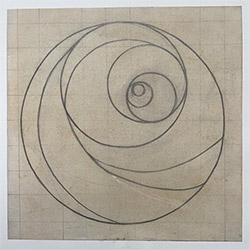

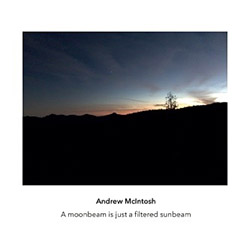
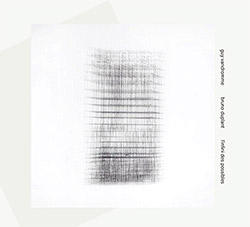
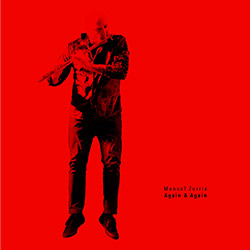
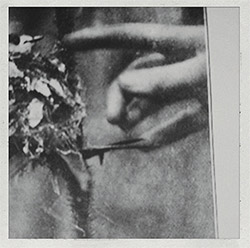




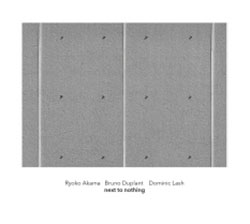
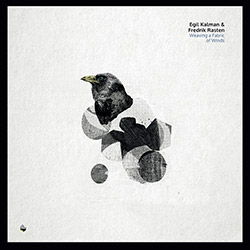
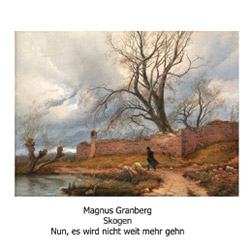
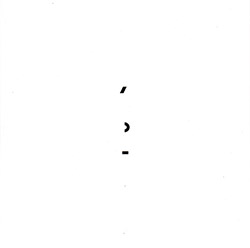
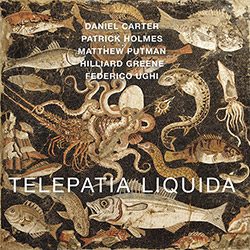


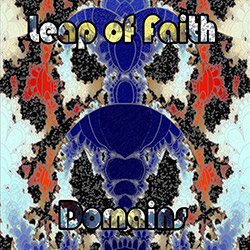
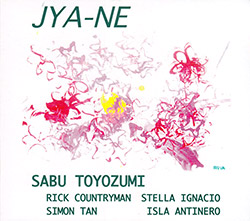
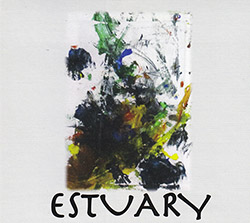
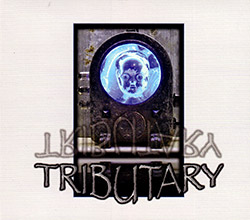

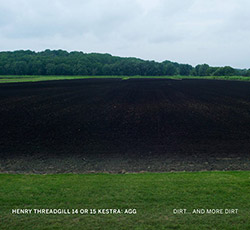




![Niblock, Phill / Anna Clementi / Thomas Stern: Zound Delta 2 [VINYL]](https://www.teuthida.com/productImages/misc4/34623.jpg)
![Yoko, Ono / The Great Learning Orchestra: Selected Recordings From Grapefruit [2 CDs]](https://www.teuthida.com/productImages/misc4/35841.jpg)

![Brotzmann, Peter / John Edwards / Steve Noble / Jason Adasiewicz: The Quartet [2 CDs]](https://www.teuthida.com/productImages/misc4/35975.jpg)
![Brotzmann, Peter / John Edwards / Steve Noble / Jason Adasiewicz: The Quartet [VINYL 2 LPs]](https://www.teuthida.com/productImages/misc4/35976.jpg)
![Thomas, Pat: The Solar Model of Ibn-Al Shatir [VINYL]](https://www.teuthida.com/productImages/misc4/36044.jpg)
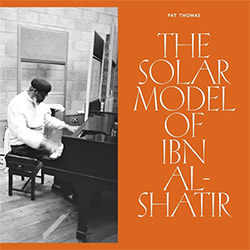



![Rodrigues, Ernesto / Nuno Torres / Guilherme Rodrigues: Whispers In The Moonlight - In Seven Movements [2CDs]](https://www.teuthida.com/productImages/misc4/35765.jpg)



![Cocks, Laura: FATHM [VINYL]](https://www.teuthida.com/productImages/misc4/36055.jpg)










![Ackerley / Prymek / Turner: All Hope With Sleeping Minds [CASSETTE]](https://www.teuthida.com/productImages/misc4/35950.jpg)
![Myers, David Lee : Tin Drop Tear [BOOK w/ DOWNLOAD]](https://www.teuthida.com/productImages/misc4/36030.jpg)




![Schindler, Udo / Sandy Ewen / Damon Smith: Munich Sound Studies Vols. 4, 5 & 6 [3 CDs]](https://www.teuthida.com/productImages/misc4/35966.jpg)
![Turbulence Orchestra & Sub-Units: Smear Out the Difficulties (Double Live) [2 CDs]](https://www.teuthida.com/productImages/misc4/36048.jpg)


![Perelman, Ivo / Tyshawn Sorey: Paralell Aesthetics [2 CDs]](https://www.teuthida.com/productImages/misc4/35871.jpg)


![Sjostrom, Harri: SoundScapes #4 Festival Berlin 2023 [3 CDs]](https://www.teuthida.com/productImages/misc4/35874.jpg)



![Glenn, Jordan: Flustered [CASSETTE]](https://www.teuthida.com/productImages/misc4/35948.jpg)










![Olencki, Weston : Pearls Ground Down To Powder [VINYL]](https://www.teuthida.com/productImages/misc4/35956.jpg)
![Myers, David Lee: Oculus [2CDs]](https://www.teuthida.com/productImages/misc4/35857.jpg)


![dustsceawung: dustsceawung [CASSETTE w/ Download]](https://www.teuthida.com/productImages/misc4/35753.jpg)




![Halls of the Machine: Atmospheres For Lovers And Sleepers [CASSETTE w/ DOWNLOAD]](https://www.teuthida.com/productImages/misc4/35806.jpg)



![AHC (Alexander Cooper): Lase [2 CDs]](https://www.teuthida.com/productImages/misc4/35754.jpg)



![Fagaschinski, Kai / Yan Jun : Graveyard Processions [VINYL w/ DOWNLOAD]](https://www.teuthida.com/productImages/misc4/35474.jpg)









![Zorn, John / JACK Quartet: The Complete String Quartets [2 CDs]](https://www.teuthida.com/productImages/misc4/35609.jpg)

![Lonsdale, Eden: Dawnings [2 CDs]](https://www.teuthida.com/productImages/misc4/35480.jpg)







![Sanna, Claudio: Compositori Sardi Contemporanei II [2 CDs]](https://www.teuthida.com/productImages/misc4/35317.jpg)







![Zurria, Manuel: Fame di Vento [3 CDs]](https://www.teuthida.com/productImages/misc4/35167.jpg)


![Electric Bird Noise / Derek Roddy: 8-10-22 [CD EP]](https://www.teuthida.com/productImages/misc4/35970.jpg)








![Elephant9 : Mythical River [VINYL]](https://www.teuthida.com/productImages/misc4/34624.jpg)



![Elephant9 with Terje Rypdal: Catching Fire [VINYL 2 LPs]](https://www.teuthida.com/productImages/misc4/35355.jpg)
![Deerlady (Obomsawin, Mali / Magdalena Abrego): Greatest Hits [VINYL]](https://www.teuthida.com/productImages/misc4/34876.jpg)







![Surplus 1980: Illusion of Consistency [CD]](https://www.teuthida.com/productImages/misc4/35069.jpg)
![Staiano, Moe: Away Towards the Light [VINYL + DOWNLOAD]](https://www.teuthida.com/productImages/misc4/35037.jpg)



![Caveira (Gomes / Sousa / Abras / Ferrandini): Ficar Vivo [VINYL]](https://www.teuthida.com/productImages/misc4/34643.jpg)
![Coley, Byron: Dating Tips for Touring Bands [VINYL]](https://www.teuthida.com/productImages/misc4/17906.jpg)

![Lost Kisses: My Life is Sad & Funny [DVD]](https://www.teuthida.com/productImages/misc4/lostKissesDVD.jpg)